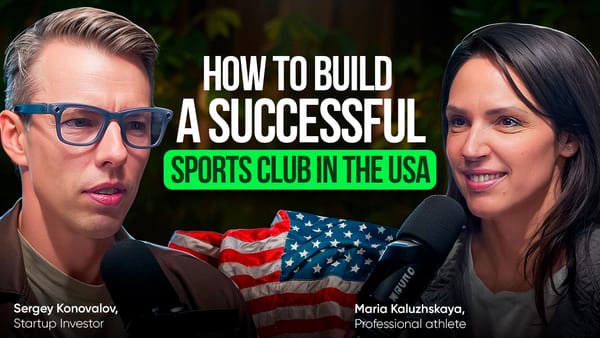What Immigrants Go Through to Chase the American Dream
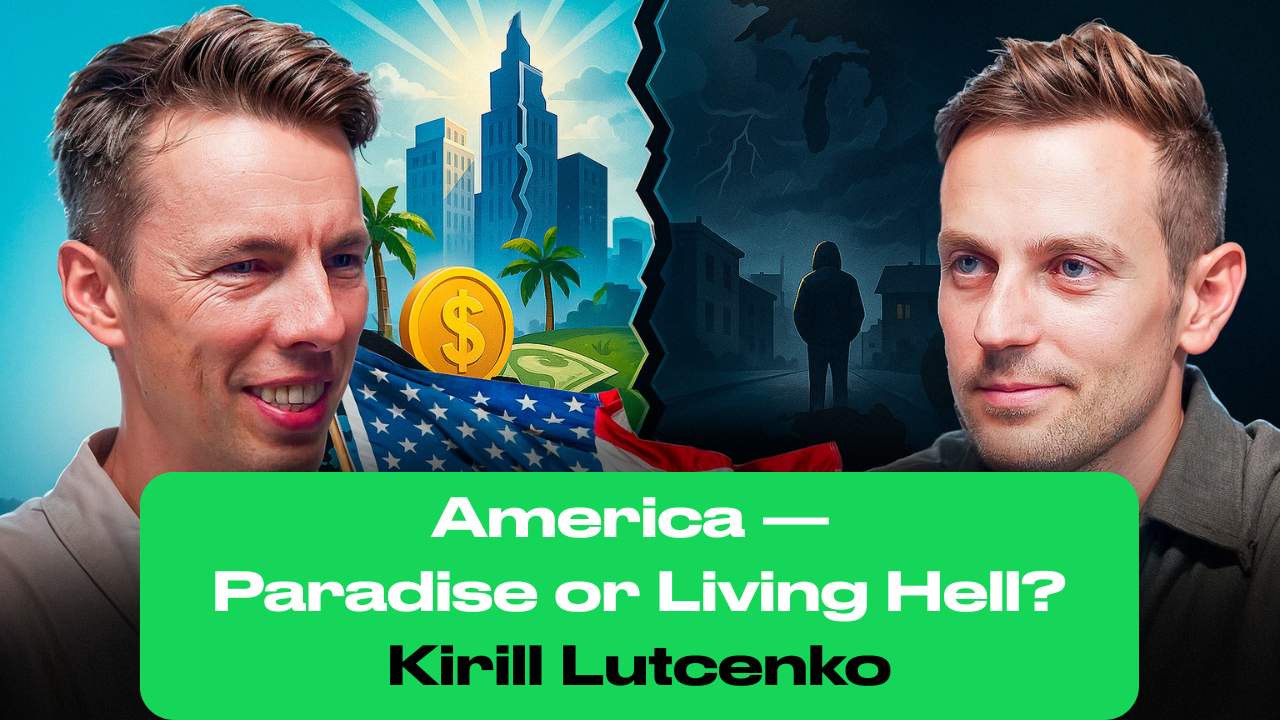
Kirill Lutcenko is a former actor and TV host who immigrated to the U.S. in 2016. He worked as a waiter and hospice aide, retrained as a DJ, and eventually launched his video production company, Spinach Video, in Silicon Valley. Today he focuses on viral content for medical brands and participates in startups developing microrobots and miniature motors.
The first 5–6 years of my life in the U.S. were absolute hell.
When and why did you decide to leave your hometown?
I remember that moment back in ninth grade — sitting in math class and thinking: Is this really the limit of my life? My first trip to Europe showed me that the world could be completely different. That became the catalyst: the desire for change, the sense of new opportunities, and a very clear feeling that I could do more elsewhere.
What did your start in the U.S. look like? What was the hardest part?
In the beginning, I worked as a waiter and later as a hospice aide. It was physically exhausting and emotionally brutal — you see people in their most vulnerable state, and it weighs on you. On top of that, without fluent English many people assume you’re uneducated, which is far from the truth.
How did you manage with no “local experience” and minimal English?
The first thing I did was lean into my strengths. I used to host TV programs and perform on stage, so I switched to DJing — music became my language. This opened doors in the Valley: investors, founders, entrepreneurs — I could move between different social circles. At the same time I was learning English, improving my skills, and searching for niches where my background could convert into real opportunities.
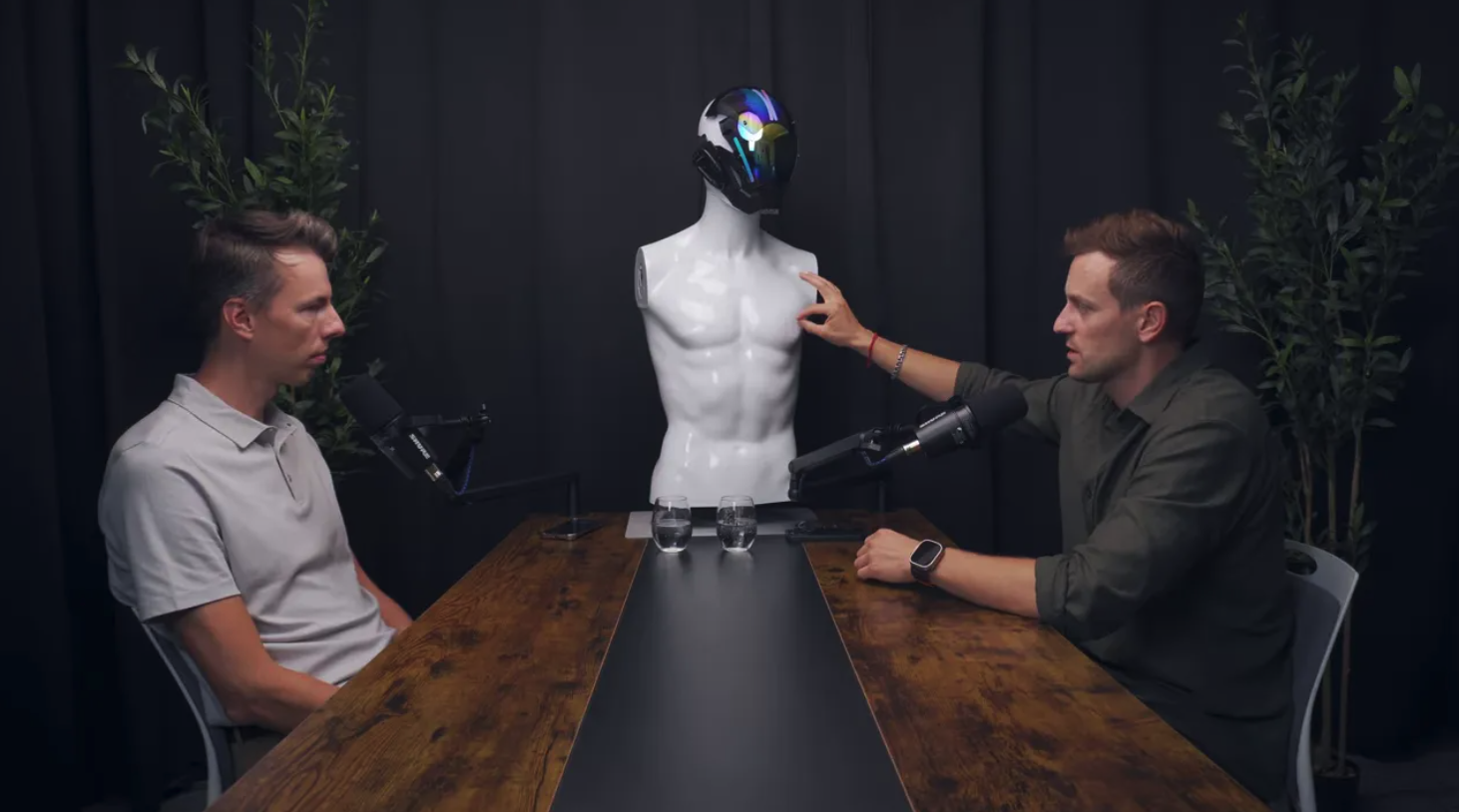
Where did the idea for a production company come from, and why the name Spinach?
Working in front of the camera naturally led me to step behind it. That’s how I launched my first U.S. business — a production company. The name came spontaneously: I told myself the first word that comes to mind will be the name. It happened to be “Spinach,” and strangely enough, people remembered it easily. We ended up working with a wide range of clients across the Valley — from small brands to projects backed by major funds.
What’s your business strategy? How is Spinach Video different from regular iPhone videographers?
The barrier to entry in video production is low — anyone with a phone can shoot. Our strategy is to focus on viral content plus system thinking: we create videos that genuinely hook audiences and then use them as anchors for ad campaigns on TikTok, YouTube, and Instagram.
For example: a 14-second clip with an ultrasound student hit 38 million views. That gives us a strong hook to build highly effective low-CPA campaigns.
What viral content examples stood out to you?
The ultrasound gel video. A girl applies a tiny drop, then a stripe, then way too much gel — and it turned out to be incredibly relatable. It went international: millions of views and comments in multiple languages. A perfect example of when a simple idea + the right delivery = massive reach.
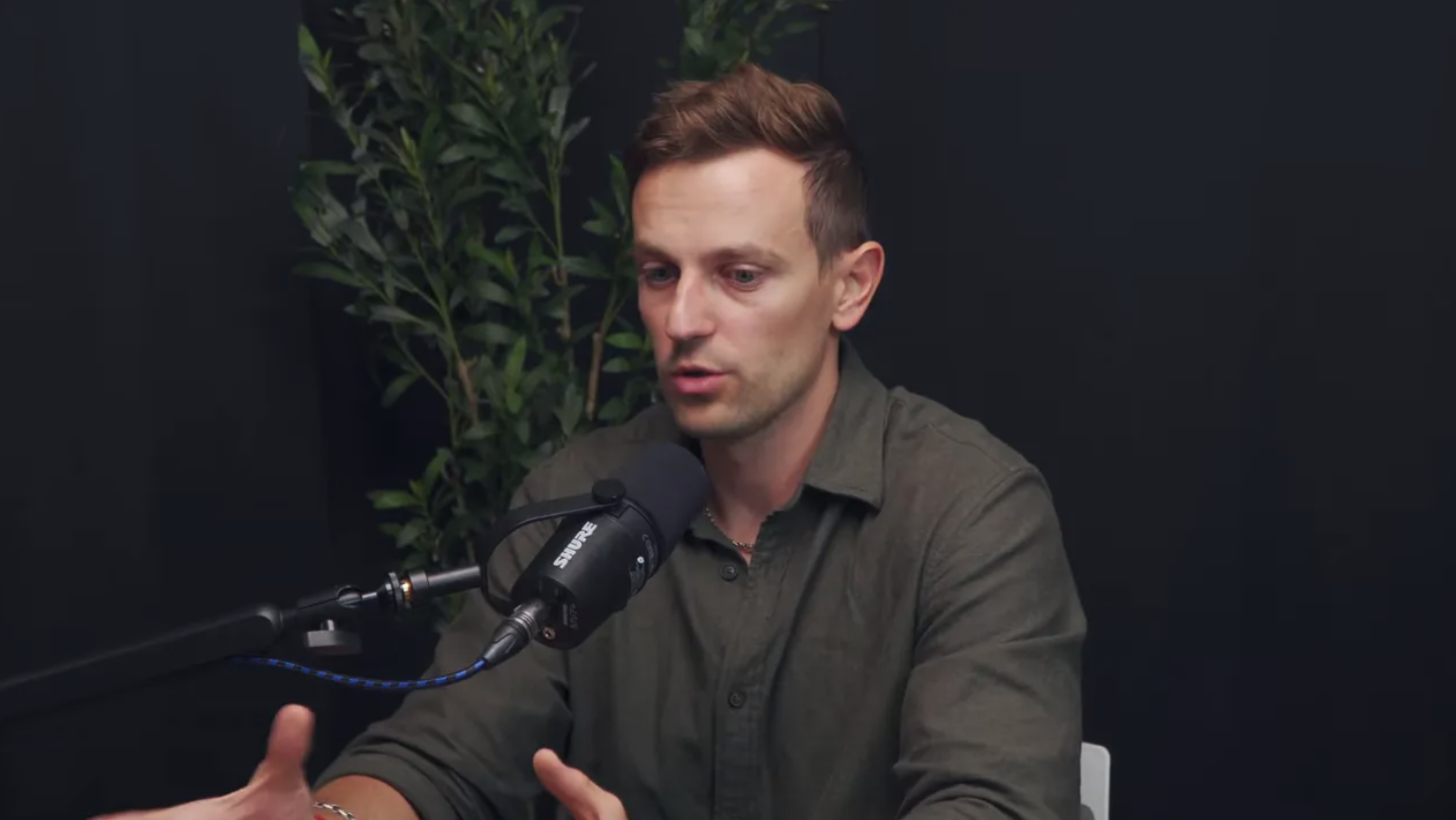
You say you want to “save lives.” How does that connect to production?
That’s a separate mission. Through events and connections in the Valley, I was noticed by Spike Dynamics — a startup creating microrobots for targeted drug delivery and internal diagnostics. We helped them with marketing and built an open-source technology for miniature piezoelectric motors.
These motors can be finger-sized, lift heavy loads, and operate in extreme conditions. Imagine a tiny robot traveling through your blood vessels to your heart and performing diagnostics without open surgery.
What’s the advantage of living and building a career in Silicon Valley?
The chance to “step on the foot” of someone extraordinary — someone literally changing the world. Here you have events, meetings, and projects where one interaction can bridge you into a completely different reality. But competition is intense, and FOMO is real: you want to try everything, but your resources are limited.
What’s your take on AI and ChatGPT? Should we trust it with ideas and decisions?
AI is the next stage of technological evolution, but it has serious limitations. ChatGPT often adapts to the user and can “confirm” wrong assumptions. I always ask “Why not?” — I ask the model to criticize my idea and expose weak points. Experts recommend asking AI for counterarguments — it forces you to think and keeps you out of the confirmation-bias bubble.
What practical advice can you give newcomers?
- Use your “bubbles.” The Valley has many circles — investors, founders, entrepreneurs. Learn to move between them.
- Take responsibility seriously. If you take on a project, do it as if you’d “die trying.” That builds reputation and opens doors.
- Being bilingual is an advantage. Two languages mean stronger communication and cross-cultural skills.
- Learn English through kids’ books and shows. If your level is like a six-year-old’s — libraries and Sesame Street work better than courses at the start.
- Don’t go to DMV offices in big cities. Small towns process everything faster — you’ll save days.
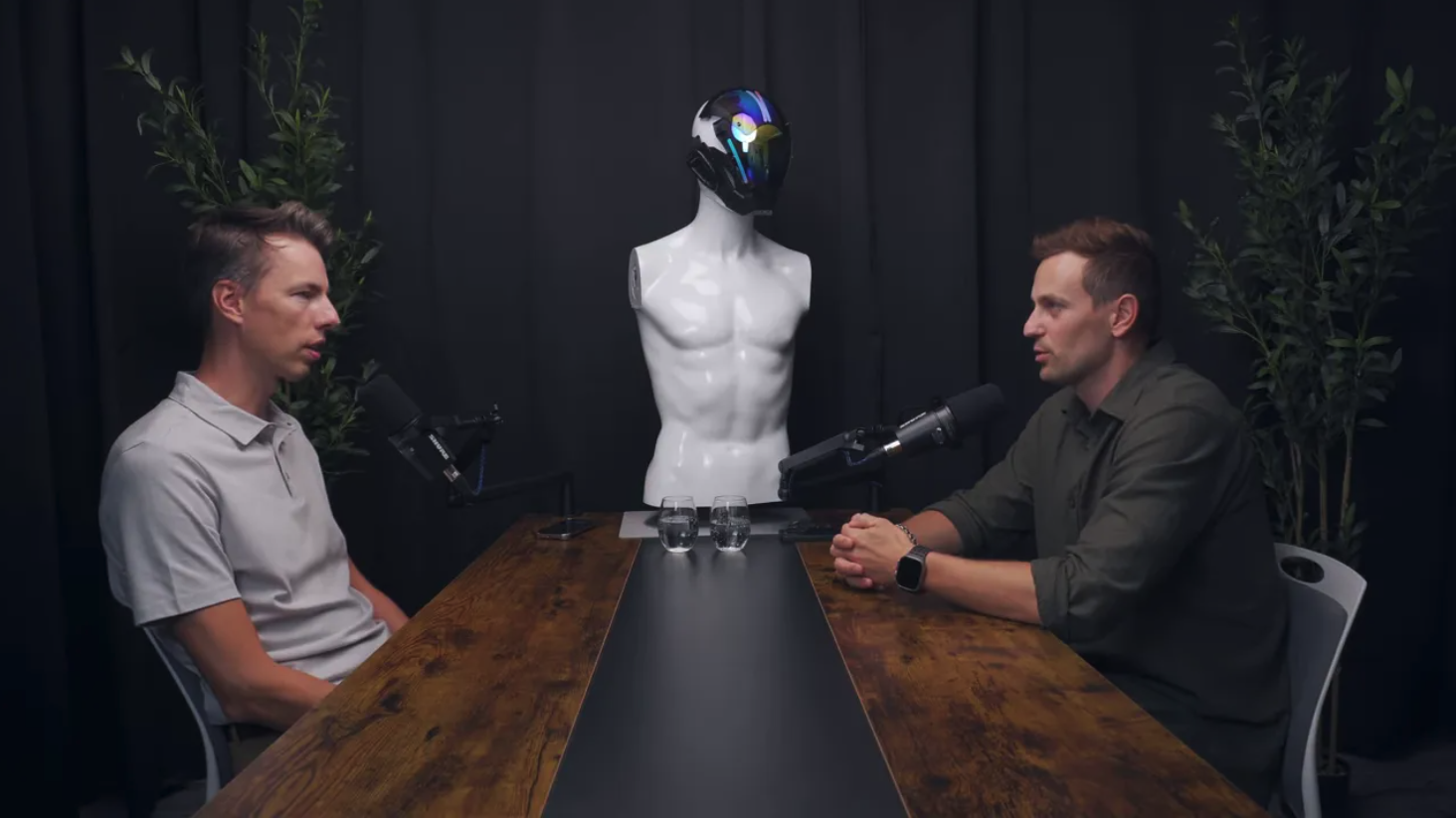
What mistakes slowed you down — and what should others avoid?
The biggest mistake is waiting for the “perfect moment.” If something hurts now — that’s a sign to act. The story of the dog on the nail explains it well: sometimes the pain isn’t intense enough to force action. If you have ambition and vision, don’t delay — even if the path is tough.
Job or business — what’s better?
If a corporate job pays as much as running a business, choose the job: less stress, more free time.
Business makes sense when you have a mission, big goals, and a willingness to take risks.
Has your financial situation improved after moving?
Measured in rubles — absolutely, my income grew many times over. But in terms of lifestyle — no, at least not in the beginning. In Russia I could buy an apartment in a year; in the U.S. it took years to reach a similar level of comfort. But now things are changing quickly, and we’re getting close to where the quality of life matches the expectations.
Where would you advise people to move in the U.S. today?
I’d look at Pennsylvania. A large AI cluster is forming there — plants, centers, jobs. If you’re technical, it’s easier to break in there than in oversaturated Silicon Valley.
What helps you not give up on the hardest days?
Knowing you have a “backup” — family or a place you can return to. That gives courage to try. And it’s important to remember: any pain can be reframed as growth. Past hardships become your experience capital.
Short advice
- If you’re leaving your country — have strong reasons. Immigration is expensive emotionally and time-wise.
- Don’t fear retraining. Skills from your past life can be repurposed into new formats.
- Use viral content as a growth tool for medical and tech brands.
- Ask AI for counterarguments. Ask ChatGPT: “Why won’t this work?” — it forces critical thinking.
- Fear nothing and never stop. When the emotional noise fades, what remains will surprise you — you’ll see how far you’ve climbed.

